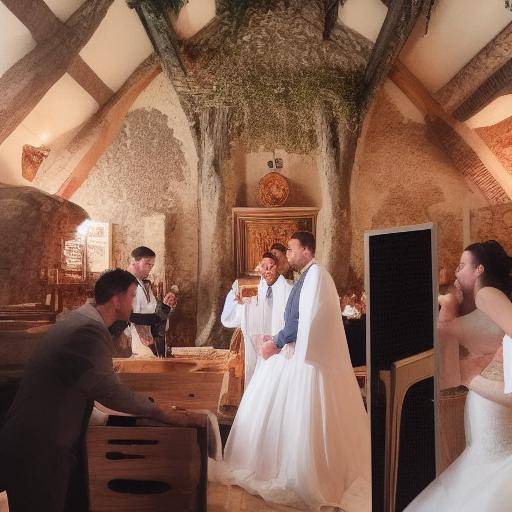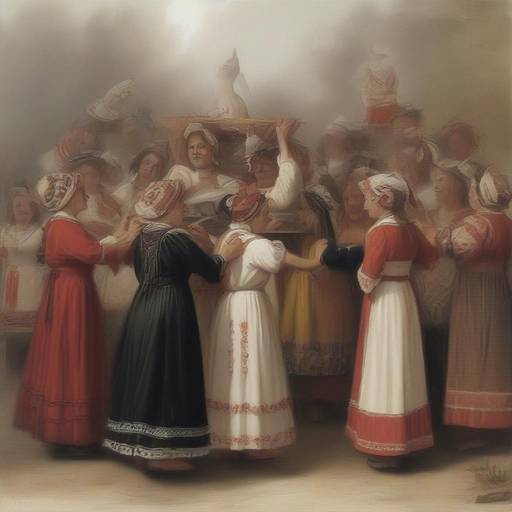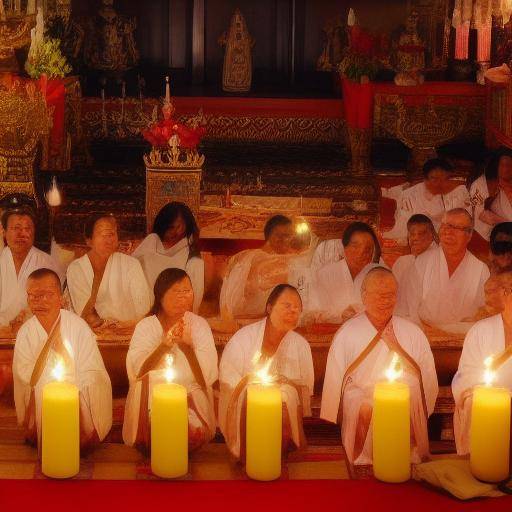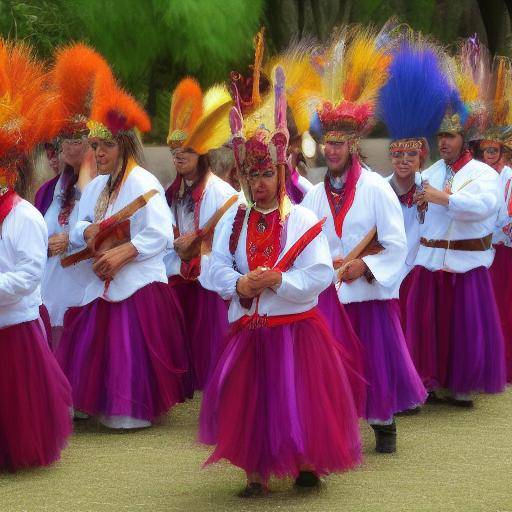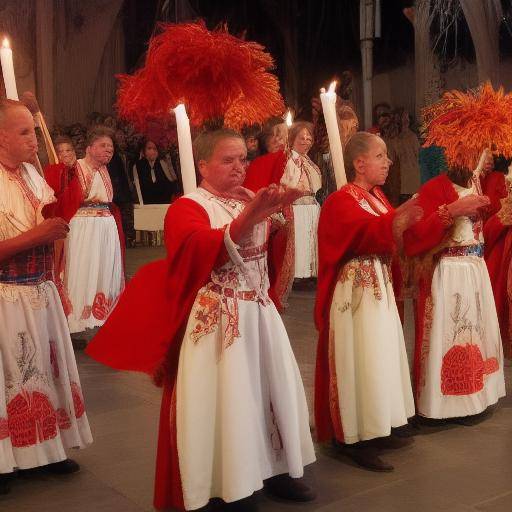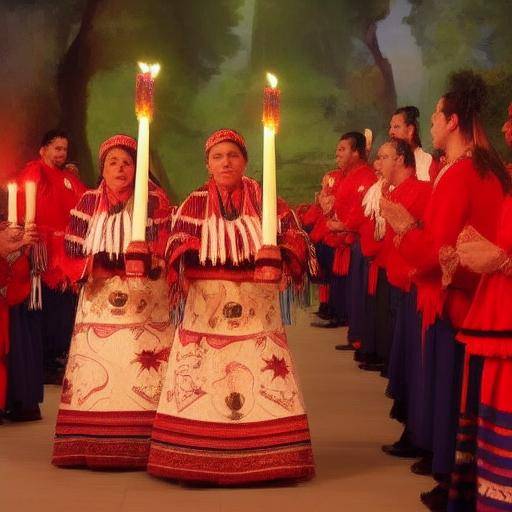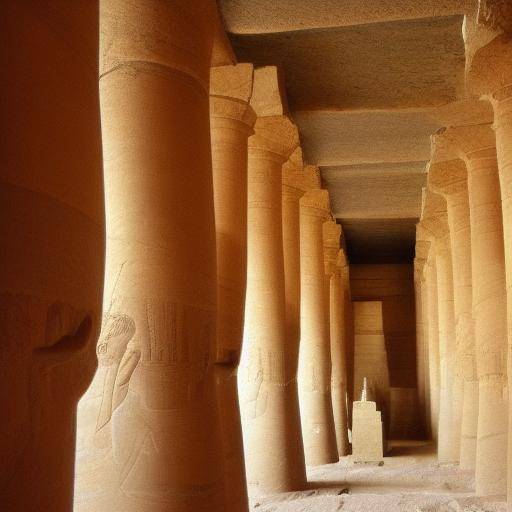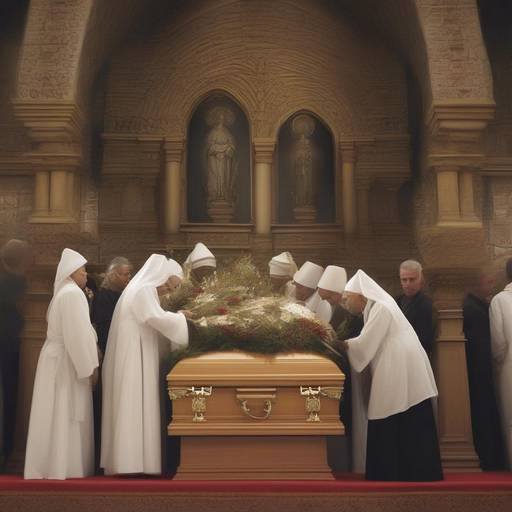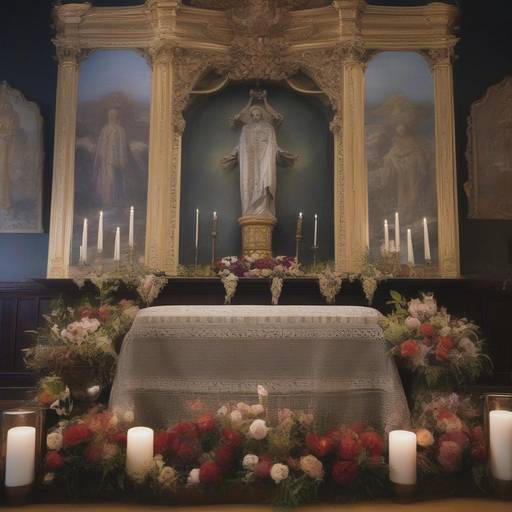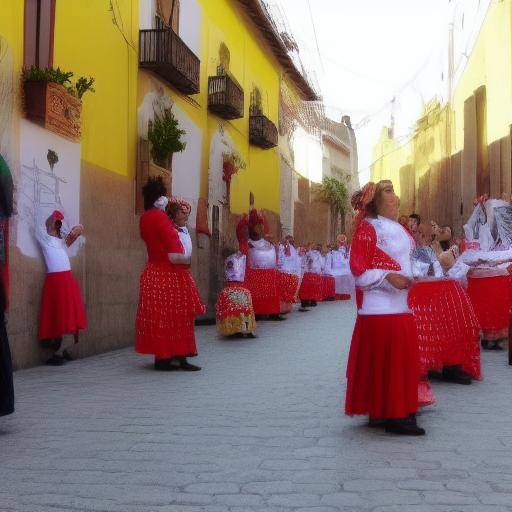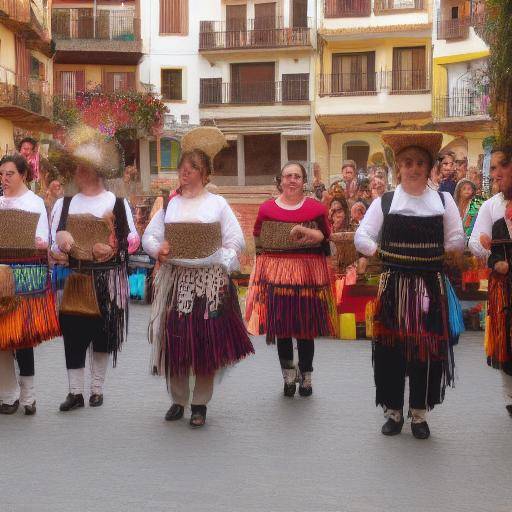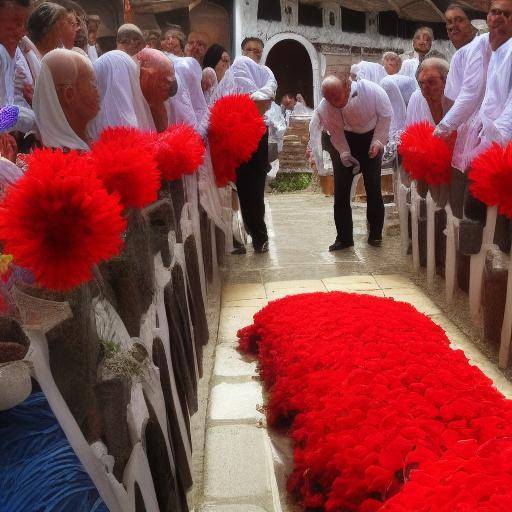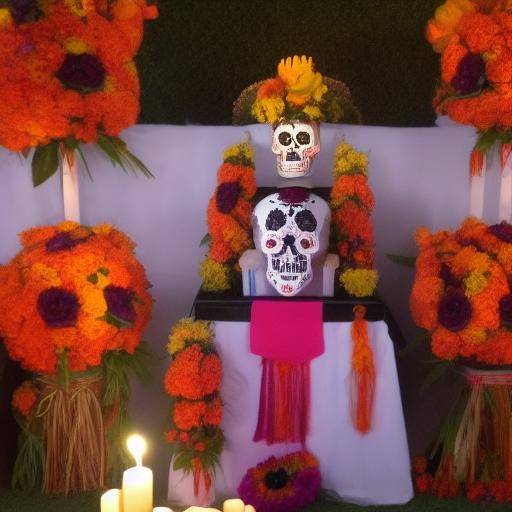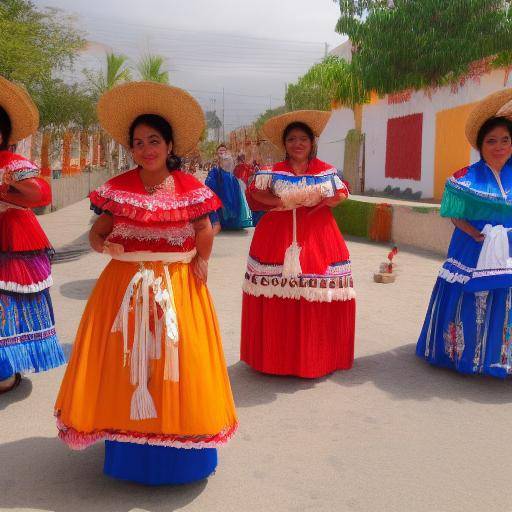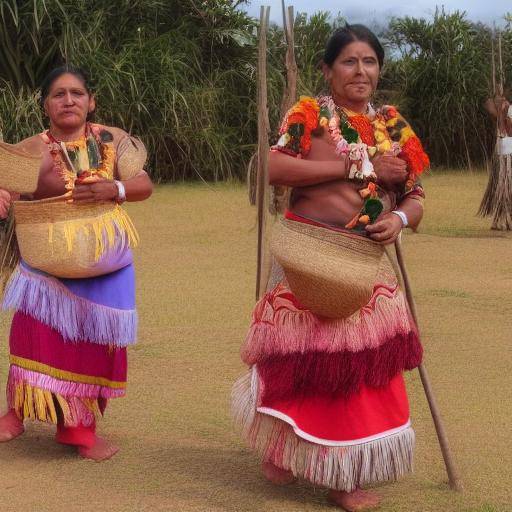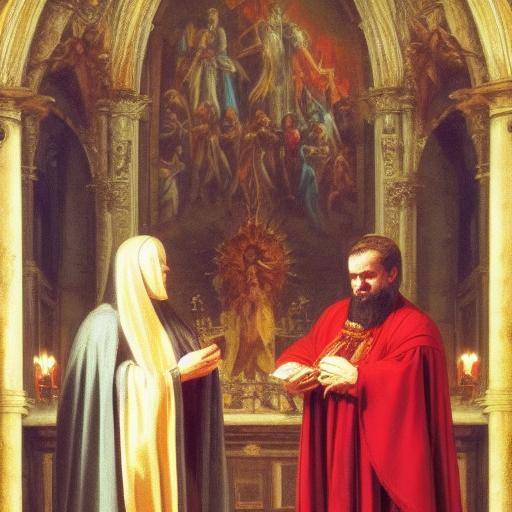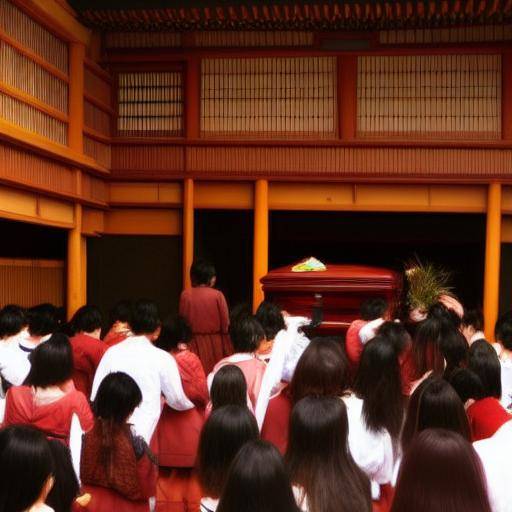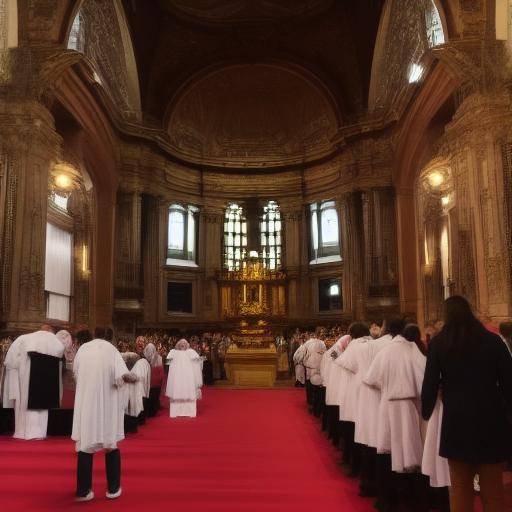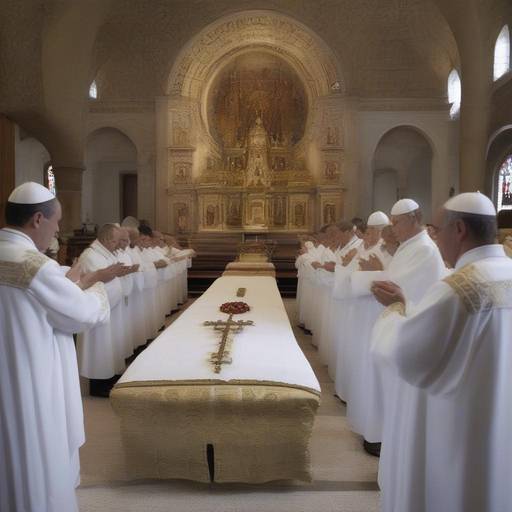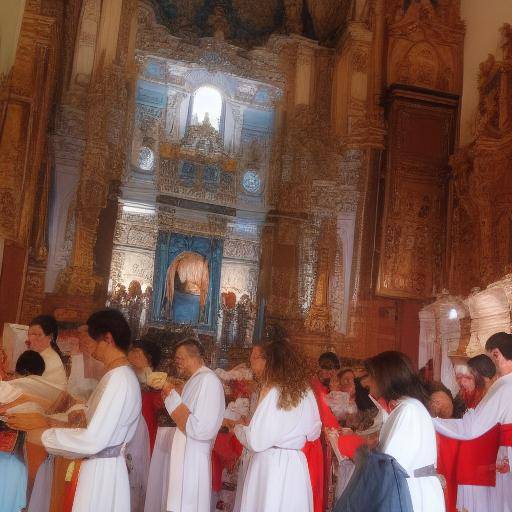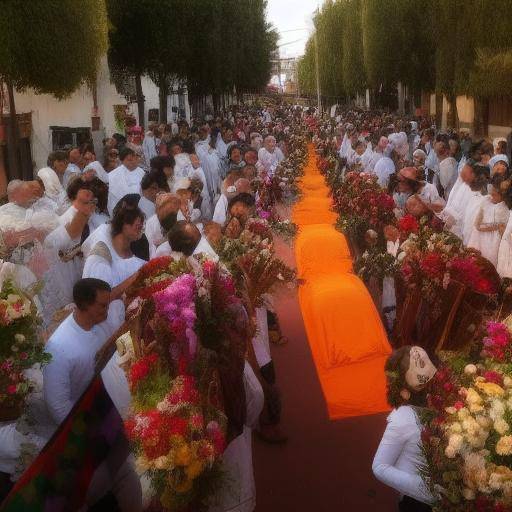
Death is a subject that has been addressed in various ways throughout history and, in Hindu culture, funeral traditions take on a unique and profound meaning. In this article, we will explore in detail the practices, rituals and beliefs related to funeral traditions in Hindu culture, providing a profound understanding of their importance and meaning within this millennial tradition. From its history and evolution to contemporary rituals and future trends, this comprehensive analysis will provide an integral vision of funeral traditions in Hindu culture.
Introduction
Hindu culture has been shaped by a rich amalgam of traditions, mythologies and rituals covering all aspects of life, including death and beyond. Funeral traditions in Hindu culture reflect a fascinating combination of religious beliefs, spiritual philosophies and ritual practices rooted in ancient times. In exploring these profound funeral traditions, we will not only gain a deeper understanding of Hindu culture, but also appreciate the diversity and wealth of funeral practices around the world.
History and Background
The history of funeral traditions in Hindu culture dates back centuries, with roots intertwined with ancient sacred texts, mythologies and religious beliefs. From the epic Vedic scriptures to the teachings of the Upanishads, death has been contemplated in Hindu philosophy as an integral part of the cycle of life and reincarnation. Funeral practices in Hindu culture have evolved over time, influenced by various religious currents and social changes, while maintaining their profound spiritual significance.
Funeral traditions in Hindu culture reflect belief in reincarnation, where the soul is considered immortal and eternal, transcending physical death. Therefore, funeral rituals are designed to honor the soul of the deceased and facilitate its transition to the next plane of existence. These rituals also aim to provide comfort to loved ones and help them overcome grief while maintaining the spiritual bond with the deceased.
Analysis in Deep
The in-depth analysis of funeral traditions in Hindu culture allows us to understand the complexities and layers of meaning that are woven in every ritual and practice. From the cremation process, considered as a liberation from the reincarnation cycle, to the farewell rituals that honor the memory of the deceased, each aspect of funeral traditions reveals a deep connection to spirituality and transcendence.
At present, funeral traditions in Hindu culture continue to evolve, adapting to modern contexts and changing needs of society. While traditional rituals remain fundamental, there is a growing integration of contemporary practices, such as the use of technology in the organization of ceremonies or the adoption of more inclusive approaches to adapt to the cultural diversity of the Hindu community.
Comprehensive review
By exploring the applications, case studies and best practices of funeral traditions in Hindu culture, we find a rich upholstery of cultural and spiritual expressions. Geographic diversity and the multiplicity of regional traditions within Hindu culture offer an enriching and dynamic view of funeral traditions, each with its own peculiarities and symbolic meanings.
The integral examination of funeral traditions in Hindu culture leads us to appreciate the richness and variability of funeral rituals, ranging from the rite of the final step (Antyeshti), which marks the final farewell of the deceased, to the commemorative ceremonies that celebrate their legacy and their lasting influence in the community. The integration of these practices into the daily life of the Hindu community reveals the profound connection between life, death and transcendence.
Comparative analysis
In conducting a comparative analysis of funeral traditions in Hindu culture with respect to other funerary traditions and rituals in the world, we can highlight both similarities and significant differences. While in some cultures cremation is a common practice, in others burial is preferred. However, the deep reverence for the deceased and the importance of honoring his memory are universal aspects that transcend cultural differences.
In the context of Hindu culture, the symbolic wealth of funeral rituals, the inclusion of sacred chants and the participation of the community in the mourning process highlight the importance of spiritual and emotional connection with the deceased. This comparison reveals the diversity of approaches and practices that enrich the global landscape of funeral traditions and underlines the importance of understanding and appreciating the plurality of cultural expressions.
Practical Tips and Accessible Recommendations
For those who wish to better understand funeral traditions in Hindu culture or participate in rituals at the time of the loss of a loved one, it is essential to know how to show proper respect and participate meaningfully in rituals. Here are some practical tips and actionable recommendations that can help those who want to learn more about how to approach and participate in the funerary traditions of Hindu culture.
- Familiarize yourself with common funeral rituals, such as the cremation process, farewell ceremonies and commemorative rituals.
- It participates respectfully in rituals, following the indications of community members and demonstrating a spirit of solidarity and support.
- Learn about the importance of sacred chants, prayers and mantras in the context of Hindu funeral rituals, and respect their meaning and influence in the mourning process.
- It establishes an open and empathic communication with family members and the community, showing understanding and respect for their pain and need for comfort.
Industry Perspectives and Expert Reviews
The perspectives of the funeral industry and the views of experts in cultural studies, anthropology and religion shed light on the evolution of funeral traditions in Hindu culture and its relevance in the contemporary context. Experts offer a profound and insightful view of how these traditions continue to adapt and transform in response to social, technological and cultural changes while maintaining their essence and spiritual significance.
By consulting experts in religious anthropology and sociology, we can better understand the influence of funeral traditions in Hindu culture in the formation of individual and collective identities, as well as their role in the preservation of cultural and spiritual heritage. Their views shed light on the importance of preserving and respecting these traditions, while promoting intercultural dialogue in an increasingly diverse and connected world.
Cases of Study and Applications in Real Life
Through detailed study cases and applications in real life, we can appreciate the depth and wealth of funeral traditions in Hindu culture and their lasting impact on communities. From commemorative ceremonies that honor influential personalities to family rituals that celebrate the memory of loved ones, each case of study reveals the diversity of cultural expressions and the importance of preserving these traditions in a constantly changing world.
The concrete examples of how funerary traditions in Hindu culture influence everyday life and the mourning process allow us to understand the profound meaning of these practices and their continued relevance. By analyzing these applications in real life, we can better understand how funeral traditions in Hindu culture foster emotional, spiritual and community connections, and how they continue to play a fundamental role in how society deals with loss and pain.
Future Trends and Predictions
In projecting future trends and predicting the development of funeral traditions in Hindu culture, it is essential to consider the impact of globalization, technology and socio-cultural changes on how these practices will evolve in the future. From the adoption of more sustainable approaches in the cremation process to the integration of contemporary practices that reflect cultural and religious diversity, predictions about the future of funeral traditions in Hindu culture offer an intriguing and insightful vision.
Experts in religious and cultural studies point to the importance of preserving the authenticity and spiritual significance of these traditions, while recognizing the need to adapt to the challenges and opportunities that arise in the modern world. Reflection on these future trends and predictions invites us to contemplate the continuing and dynamic role of funeral traditions in Hindu culture and how they will continue to influence the lives of future generations.
Conclusion
Funeral traditions in Hindu culture represent a legacy of spiritual meaning, community connection and respect for life and death. Through rituals rooted in antiquity and adapted to contemporary realities, these practices continue to provide comfort, meaning and guidance at a time of transition and loss. By understanding the wealth and diversity of these traditions, both within the Hindu community and in a global context, we can appreciate the profound humanity that underlies in the way we honor our loved ones and prepare for the journey to the unknown.
Funeral traditions in Hindu culture invite us to contemplate the ephemeral nature of life and the transcendence of the human spirit, giving us an enriching vision of the connection between the earthly and the ethereal. Ultimately, these traditions remind us of the importance of embracing and honoring the totality of human experience, from birth to death, and celebrating the continuity of life in all its manifestations.
Frequent Questions (FAQs) about Funeral Traditions in Hindu Culture
1. What role do castes and regions play in the variations of funeral traditions in Hindu culture?
Funeral traditions in Hindu culture can vary significantly according to region and caste. Each region of India may have its own specific practices and rituals, and castes may also influence how funeral rituals and taboos associated with them are performed.
2. What is the spiritual meaning of cremation in Hindu culture?
In Hindu culture, cremation is considered a crucial step to free the soul from the reincarnation cycle and allow it to continue its journey in the beyond. It is believed that cremation releases the spirit of the physical body and facilitates its transition to the next plane of existence.
3. How do community members participate in Hindu funeral rituals?
Community involvement in Hindu funeral rituals is a significant aspect of these traditions. Community members can take part in different activities, such as body preparation, ceremonies organization and assistance to mourning families.
4. What is the purpose of commemorative rituals in Hindu culture?
The commemorative rituals in Hindu culture are intended to honor the memory of the deceased and celebrate his legacy. These ceremonies offer the community the opportunity to remember and pay tribute to the deceased, strengthening the emotional and spiritual connection with his life and his influence in the community.
5. How are the funerary traditions in Hindu culture adapted to modern times?
Funeral traditions in Hindu culture are experiencing adaptations to accommodate modern times. These adaptations include the use of technology in the organization of ceremonies, more inclusive approaches to reflect cultural diversity and the integration of sustainable practices in the cremation process.
6. What is the role of sacred music and chants in Hindu funeral rituals?
Sacred music and chants play a central role in Hindu funeral rituals. These artistic and spiritual expressions are used to elevate the mood, provide comfort and transmit messages of peace, transcendence and connection with the divine during the mourning and farewell process.
These frequent questions offer a comprehensive and enlightening view of funeral traditions in Hindu culture, addressing aspects of significant importance and providing a deeper understanding of their meaning and associated practices.
In the dynamic and diverse world of funeral traditions in Hindu culture, each of these aspects reveals the depth of beliefs, rituals and practices rooted in a unique spiritual and cultural philosophy. In exploring these deep issues, we come closer to understanding more fully the transcendental essence underlying the funerary traditions of Hindu culture.
Conclusion: Funeral traditions in Hindu culture offer a profound and meaningful perspective on how society addresses death, grief and transcendence. These practices reflect the spiritual depth and cultural richness of a millennial tradition, providing comfort, meaning and guidance at a time of transition and loss. In exploring the history, meaning and contemporary applications of these traditions, we enter a world of philosophy, spirituality and human connection that transcends borders and eras.
Funeral traditions in Hindu culture invite us to contemplate the ephemeral nature of life and the importance of honoring the continuity of existence in all its manifestations. Through rituals rooted in the old and adapted to modern challenges, these practices remind us of the need to embrace the whole of human experience, from birth to death, celebrating life in all its expressions.






